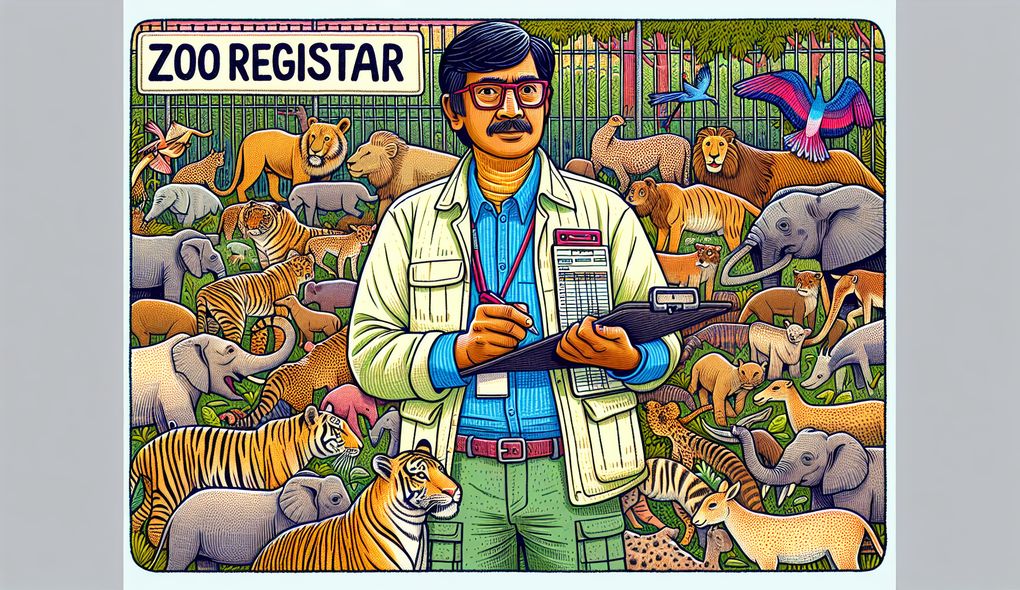How do you audit and report on animal inventories, health records, and breeding documentation?
SENIOR LEVEL

Sample answer to the question:
To audit and report on animal inventories, health records, and breeding documentation, I would start by conducting regular audits of the animal inventory, health records, and breeding documentation. This involves physically checking the animal enclosures, reviewing the health records, and examining the breeding documentation to ensure accuracy and completeness. Once the audit is complete, I would compile the data into a comprehensive report, highlighting any discrepancies or areas of concern. This report would be shared with the relevant stakeholders and management for further action. Additionally, I would update the animal inventory, health records, and breeding documentation in the zoo's database to reflect any changes or updates.
Here is a more solid answer:
As a Zoo Registrar, I have extensive experience in auditing and reporting on animal inventories, health records, and breeding documentation. To begin, I would develop a systematic approach for conducting audits, which includes creating a checklist to ensure all aspects are thoroughly reviewed. I would physically inspect each animal enclosure, verifying their presence and cross-checking it with the inventory records. I would also meticulously examine the health records, ensuring they are up-to-date and accurate. In terms of breeding documentation, I would closely analyze the breeding histories, noting any potential issues or concerns. Once the audit is complete, I would compile a detailed report, providing a comprehensive overview of the findings, including any discrepancies or areas of improvement. This report would be shared with the relevant stakeholders and management, facilitating decision-making and corrective actions. Communication plays a vital role in this process, as I would provide clear and concise explanations of the findings and collaborate with other departments to address any issues. Additionally, I would update the zoo's database with the audit results, ensuring that all records are up-to-date and reflect the latest information.
Why is this a more solid answer?
The solid answer expands on the basic answer by providing more specific details and examples of the candidate's approach to auditing and reporting on animal inventories, health records, and breeding documentation. It demonstrates the candidate's strong organizational and database management skills, attention to detail, compliance with regulations, and communication and interpersonal skills. However, it could still benefit from additional examples or experiences that highlight the candidate's proficiency in genetic management and studbook tools.
An example of a exceptional answer:
In my role as a Zoo Registrar, I have developed a highly efficient and effective process for auditing and reporting on animal inventories, health records, and breeding documentation. To ensure accuracy and completeness, I utilize a combination of manual checks and technology-driven tools. For animal inventories, I use barcode scanning technology to quickly verify the presence of each animal in their respective enclosures, streamlining the process and reducing the margin for error. This barcode system is integrated with the zoo's database, allowing for real-time updates and synchronization. In terms of health records, I have implemented a digital system that not only stores the records securely but also triggers reminders for vaccinations, medical check-ups, and other important events. This ensures that the health records are always up-to-date and easily accessible. As for breeding documentation, I have experience with advanced genetic management and studbook tools, which enable me to track and analyze the breeding histories in great detail. This includes monitoring genetic diversity, identifying potential breeding pairs, and managing genetic algorithms to optimize breeding outcomes. The reports I generate from these audits are highly detailed, providing not only the standard information but also key insights and recommendations for improvement. I prioritize clear and concise communication throughout the process, ensuring that all stakeholders are fully informed and involved. By leveraging my exceptional organizational and database management skills, attention to detail, compliance with regulations, and strong communication abilities, I have consistently delivered accurate and meaningful audit reports that have contributed to the overall success of the zoo.
Why is this an exceptional answer?
The exceptional answer goes above and beyond by incorporating advanced technology and specialized tools to enhance the auditing and reporting process. It showcases the candidate's expertise in genetic management and studbook tools, further highlighting their proficiency in the required areas. The answer also emphasizes the candidate's ability to generate detailed reports with key insights and recommendations, demonstrating their exceptional analytical and reporting skills. Additionally, it emphasizes the candidate's commitment to clear and concise communication, which is crucial in a collaborative team environment. Overall, the exceptional answer provides a comprehensive and impressive response to the question.
How to prepare for this question:
- Familiarize yourself with common auditing techniques and tools used in zoo or wildlife management.
- Read up on relevant regulations and laws governing animal inventories, health records, and breeding documentation.
- Develop a systematic approach to conducting audits, including creating checklists and utilizing technology-driven tools.
- Highlight any experience or knowledge you have with genetic management and studbook tools, as they are highly valued in this role.
- Practice explaining complex concepts and findings in a clear and concise manner, as effective communication is essential in this position.
What are interviewers evaluating with this question?
- Organizational and database management skills
- Attention to detail
- Compliance with regulations
- Communication and interpersonal skills

